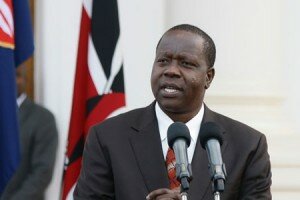
Uhuru Kenyatta was inaugurated as the fourth President of Kenya today. (www.thelondoneveningpost.com)
Kenyatta’s “one child, one laptop” policy has been much heralded, but in reality the likelihood of millions of Kenyans getting their hands on government-sponsored laptops remains small. Only a quarter of Kenyans have access to electricity, and in rural areas electrification stands at just 12 per cent.
Noises have been made about solar-powered laptops to overcome this obstacle, but details are notably vague. Kenyatta is yet to specify how he will pay for the rollout of the laptops to schools. It would be no surprise to see the policy quietly shelved once the real business of government begins.
Yet the new president is right in that he has at least identified education as crucial to Kenya’s technological ambitions. In an open letter to Kenyatta, 3mice chief executive officer Ali Hussein has called for “strong educational infrastructure and a culture of learning” to help Kenya produce the kind of qualified staff international companies say is patently missing.
Konza Tech City, the flagship project of Vision 2030, looms large. Unless Kenya can get its education system right, the only Kenyans staffing the technopolis when it is finally constructed will be those in more menial jobs. The gap between what international companies expect in terms of employees and what they get in the form of Kenyan graduates is sizeable. It is one of the first things Kenyatta must address if he is to truly make Kenya a “digital country”.





















































